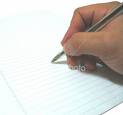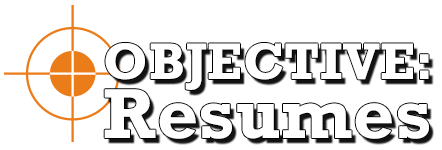 The first key principle driving the process of cover letter writing is an understanding of, underpinned by a respect for, the cover letter’s purpose. Known alternately and rather tellingly as “a letter of interest,” an effective cover letter should not merely express a job seeker’s interest in a particular opportunity or echo, word for word, the content of one’s resume. A well-written cover letter must stimulate the employer to consider the applicant as a serious contender among the vast numbers vying for the position.
The first key principle driving the process of cover letter writing is an understanding of, underpinned by a respect for, the cover letter’s purpose. Known alternately and rather tellingly as “a letter of interest,” an effective cover letter should not merely express a job seeker’s interest in a particular opportunity or echo, word for word, the content of one’s resume. A well-written cover letter must stimulate the employer to consider the applicant as a serious contender among the vast numbers vying for the position.
The surfeit of job applicants flooding the market has forced employers to accelerate and refine the process of digesting cover letters and resumes. In such a market, job-hunting is akin to competing as one of the “Final 12” in the popular reality TV program, American Idol. Constrained to perform against eleven other contestants in a rigidly timed format, each singer is given but 90 seconds each week to squeeze the essence from songs that are, in their entirety, an average of three and four times as long; 90 seconds in which to wow the judges, garner the support of millions of voters, and continue to compete for that coveted recording contract. The need for creating cover letters for resumes casts job seekers into roles similar to those of American Idol contestants. Candidates must condense their professional backgrounds into tightly written documents, providing the judging panel and voting audience (the employers) opportunities to gain a rapid and accurate sense of their individual talents and propel them into the next phase of the competition (the interview).
Therefore, the second step in cover letter writing is to quickly and clearly define one’s purpose. If you are a job hopeful interested in a specific position, state the position early in your cover letter, referring if appropriate, to a job posting number. Should you wish to explore broader opportunities within the company and not a particular position, communicate your specific skill sets rather than your attributes in the cover letter’s opening paragraph. Words such a “strong sales support, account management, and customer relations skills” will create opportunities for you to explore several potential positions.
Crystallizing your message is the third step in creating cover letters for resumes. Bearing in mind the myriad of applicants against whom you are competing, keep your message succinct and meaningful. Highlight one of your major achievements, use it to underscore your strengths, and integrate that with the job description or initiative with which the open position is linked. For example, “Having engineered the grand openings of two locations last year, on time and under budget, I am confident that I can meet your expectations in launching your new, planned unit.”
In creating cover letters for resumes, your final goal is to maximize your message and impact in order to reach the largest number of employers. Facing closed doors, many job seekers are attempting to open others in new industries. If your objective is to transition into another field, configure your cover letter to encompass the elements highlighted above, slanting the content so that it will be attractive to hiring managers in different markets. Explain why the skills, knowledge, and work ethic that you already possess will enable you to contribute something of value to the new employer. Adherence to these guidelines for effective cover letter writing will assist you in crafting documents that will facilitate management’s decision to delve further into your background and potential contributions via a personal interview.
Similar Articles cover letters
- The Perfect Resume - August 10th, 2009
- Does Your Resume Need an Extreme Makeover? - April 10th, 2009
- Student Resumes: Chapter Three - Parents' Perspectives on the Importance of Internships - February 16th, 2009
- Resume Cover Letter - December 29th, 2008
- Proper Format of a Resume: Your Key to Job-Hunting Success - December 11th, 2008

[…] you are able, tailoring them to the specific position for which you are applying.  Customizing cover letters is a very effective and fairly expedient way to accomplish this. Similar Articles career […]
[…] a job is absolutely ideal for you, reflecting skills you may have gained in another industry, the cover letter is the place for you to explain why you are that perfect fit. Unlike the resume, the letters […]